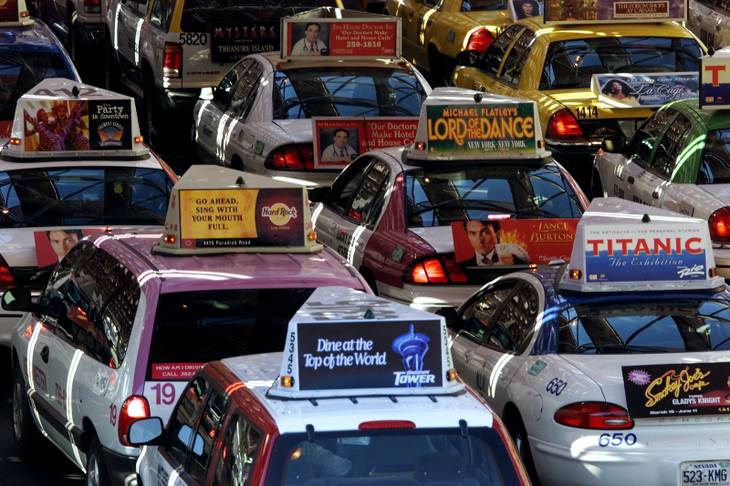Technology company Uber has arrived in Las Vegas and plans to launch its ridesharing service today, a move that could spark an all-out battle with local taxi companies intent on keeping the competitor out of the market.
Uber’s launch is timed to coincide with this weekend’s Life is Beautiful festival, which will draw tens of thousands of people to downtown Las Vegas. The company expects many will be looking for rides to and from the festival grounds to avoid parking headaches. The service should be available starting around midday, company spokesman Lane Kasselman said, and hundreds of drivers are already signed up to offer rides.
Uber has made lots of fans as it’s rolled out its service — which allows users to order a ride through a smartphone app — to more than 100 cities across the country since launching in 2010. Before today, Las Vegas was one of the largest cities Uber hadn’t launched in. The company is also launching its service in Reno and Carson City.
Uber officials were coy about what took them so long to arrive in Las Vegas, stating only that they were waiting for the right time to launch. Experts have said that Las Vegas’ highly-regulated taxi industry and unique structure of the market — 95 percent of the region’s 26 million cab rides take place at the airport or on the Strip — made it a more challenging environment than most cities.
The app works by connecting riders with a network of independent drivers, who use their own vehicles to transport passengers. The rides are touted as being 10 to 20 percent cheaper than a traditional taxi ride with faster pickup times.
Uber drivers will not be allowed to pick up riders on the Strip or at the airport, although they can drop off passengers at those locations. Instead, the company says it will focus on outlying residential areas it considers underserved by traditional taxis.
“We’re focusing on launching for people who live and work here,” Kasselman said. “There’s no question about the Strip having lots of transportation options, but the people that actually drive the economy in this city don’t have those options.”
Uber shies away from comparisons with taxicab companies, maintaining that it’s merely a technology platform that connects users in need of a ride with drivers willing to share their vehicle for a price.
Uber’s success in other cities has made it some high-powered enemies at taxicab companies. Las Vegas taxicab operators have argued for months that Uber’s service would be illegal if launched in Nevada.
Uber has pushed back against these claims, and Kasselman said the company is confident it can legally operate in Nevada. In fact, Kasselman argues, state regulations don’t even consider a service such as Uber, leaving a gray area that needs to be further defined.
Uber’s presence in other cities has drawn fierce challenges and many lawsuits in cities such as Washington, D.C., New York City and San Francisco, but the company has largely weathered the opposition and continues to operate in those cities. In many cases, new regulations were passed specifically addressing and legitimizing the ridesharing model championed by Uber and similar companies such as Lyft and Sidecar.
In Nevada, Uber will have to contend with the state’s powerful taxi lobby, which has given more than $3 million to political candidates since 1990, the highest amount of any state in the country, according to data from the Sunlight Foundation.
For now, the company is not launching its Uber Black service, which involves luxury town cars, in Nevada because state law requires those vehicles to be booked at least an hour in advance and to include a minimum fare. Neither of those requirements fits in Uber’s current business model.
